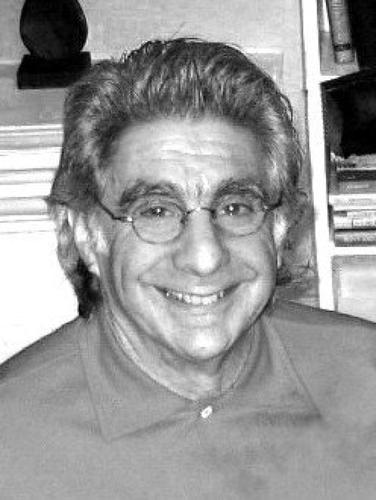Change the conversation, support rabble.ca today.
How does one life make a difference?
Take Art Pape, my lifelong friend, who died of cancer last week, at 70. We met at Holy Blossom Temple religious school in a Grade 2 class (possibly, “Jewish Heroes through the Ages”), wearing little suits and chatting caustically about how disorganized things were. He was, of anyone I’ve known, the most clearly destined for success and stardom from early on.
But, partly due to lessons we learned there, that couldn’t mean mere fame or achievement; it had to be tied to service to others and social justice, embodied in Biblical prophets like Amos and Jeremiah. In those post-Hitler decades, it especially meant commitment to human solidarity (known as “brotherhood”) and opposition to racism (called racial discrimination). So we sang songs about how “the world is getting littler every day” and “any place you point your finger to/there’s someone with the same type blood as you.” It had an abstract quality, since we rarely met anyone not white. Jews were probably the main “others” in Toronto then. But Art took it to heart.
In his 30s, he moved to western Canada and forged intimate personal links, through his family life, and then professionally as a lawyer, with aboriginal communities there. The firm he co-founded in Vancouver focused on aboriginal, environmental and constitutional issues. It trained a generation of aboriginal litigators. I’ve met lawyers who worked on cases like that who say it’s hard to find any that don’t have Art’s fingerprints somewhere on them.
Before he moved west, he was pivotal to building the peace and student movements, and the New Left of the 1960s. But, perhaps due to those early influences, he was less in sync with currents like Marxism or Maoism than many of us were. He leaned toward traditions like pacifism (the prayer kids identified with most at the Holy Blossom, began, “Grant us peace, thy most precious gift”) and the non-violent resistance emerging from the U.S. civil rights movement. In retrospect, I think those instincts, which made him somewhat marginal then, were wiser than the aggressive, hard-edged political paths taken by others.
At a memorial service this week, Art’s law partner and political soulmate for 50 years, Rick Salter (yes, we went to school together too and the similarity in names was odd) said that Art, for all his achievement, had never received any awards. That shocked me, thinking back to his early promise. It’s because he didn’t care about those things, Rick went on. Maybe he’d received enough recognition while still young, and was sated. Or maybe he assessed its value and realized the kind of internal damage that can be done by excessive praise and vanity — examples come to mind — and as a result, changed his modus operandi. By the later part of his life he’d become a strikingly modest person, revered above all for his ability to listen respectfully to others, rather than his talent for public self-presentation. I hadn’t seen him enough in public settings to register that shift. But there’s nothing about him I now admire as much as his self-effacement, not even his significant, positive impact on the history of his times.
It’s odd how we can both flee and move toward our early influences at the same time. No one I knew seemed to travel as far from the community we grew up in as Art did. But the connections he wove with Canadian aboriginal peoples weren’t as distant from his Jewish roots as they seemed. They were about the importance of community, nation, justice, peoplehood, culture, land. In his final years, when he moved back to Toronto and reconnected with his high-school girlfriend, Judi, they joined a heterodox Jewish congregation here, untraditional in its openness but traditional in much of its practice. That’s where his memorial took place, on the premises of the Unitarian church. Who knew?
You make choices that turn out not as you thought they would. Or that draw you back while you thought they were distancing you. In the end, or beyond it, where he is now, I suppose it matters less which choices you made than that you had the opportunity to make choices at all.
This article was first published in the Toronto Star.



